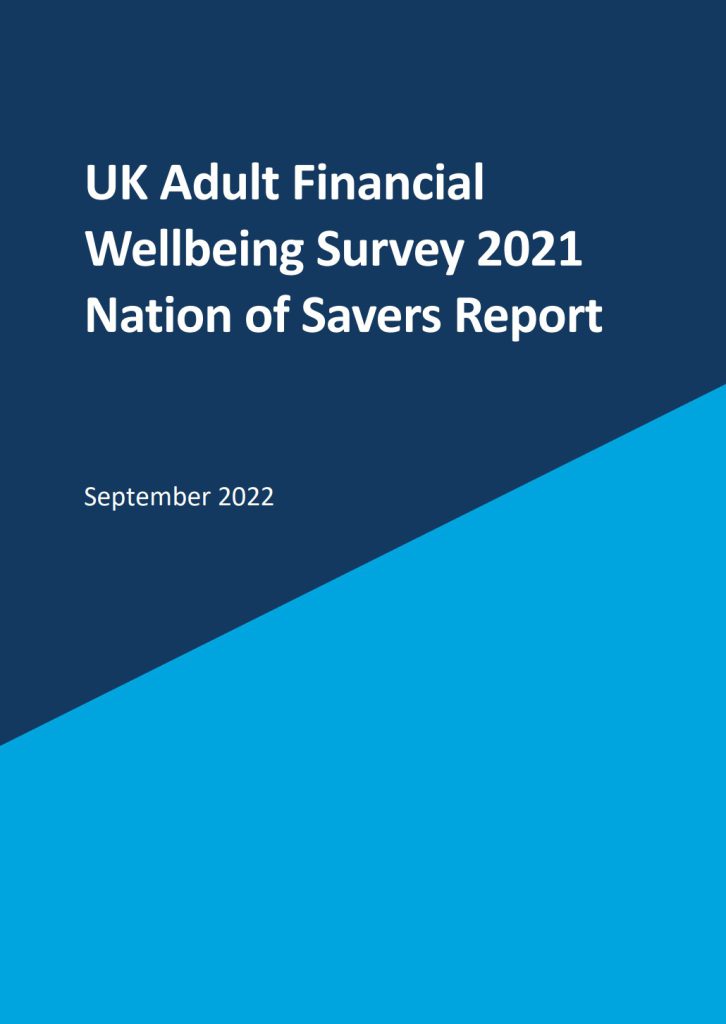Nation of Savers: A report from the UK Adult Financial Wellbeing Survey
Being a ‘regular saver’ is an important stepping stone to improving financial wellbeing. In conjunction with other attitudes and behaviours with money, it can make a big difference to people’s lives. As part of the Adult Financial Wellbeing Survey, the Money and Pensions Service (MaPS) looked at the links between regular saving and financial wellbeing, with the results showing – among other things – that regular saving isn’t all down to income and that some groups are more likely to be regular savers.
Why we ran the Nation of Savers study
Building a habit of saving regularly is a major component of financial wellbeing. It increases financial security and confidence, and improves resilience for unexpected circumstances and life events.
The UK Strategy for Financial Wellbeing identified 11.1m working age adults on low to modest incomes (financially struggling and squeezed adults) who do not save regularly. Our 2021 research finds that the percentage of people in this group who aren’t regular savers hasn’t changed significantly since then.
The Nation of Savers goal is to encourage two million more working-age people on low-to-modest incomes (financially struggling and financially squeezed) into the habit of saving regularly by 2030.
How the research was carried out
This report is based on savings questions in MaPS’ Adult Financial Wellbeing Survey; it was conducted for the Money & Pensions Service by Critical Research.
The Financial Wellbeing Survey is a nationally representative survey of 10,306 adults living in the UK, which consisted of online and postal interviews during July to September 2021.
Data is weighted to be representative of the UK’s 18+ population by region/devolved nation, age, gender, Indices of Multiple Deprivation, housing tenure, urbanity, ethnicity, working status and internet usage.
Key findings
- Regular saving isn’t all down to income.
- Saving is linked to other financial planning behaviours like setting goals and planning for retirement.
- The challenge is in making it happen, especially given current cost-of-living pressures.
61% of all UK adults save money every or most months. When we look at the target group for the national goal – the struggling and squeezed working age population – we see that this is 57%.
To some extent being able to save regularly is linked to having the income to do this.
Some groups are more likely to be regular savers:
- People working full-time
- Owner occupiers (as opposed to social or private renters)
- Lower/middle incomes (as opposed to higher incomes)
However, income, life stage and other demographics are only part of the story, as regular savers are found across the UK and among all backgrounds.
Why this research is so important
Saving even small amounts each month can improve financial wellbeing by forming a positive habit and relationship with money in general.
The research highlights the links between regular saving and other planning behaviours such as setting and working towards financial goals, and planning for retirement and understanding enough to do this.
Next steps
The Adult Financial Wellbeing Survey provides robust measures of UK financial wellbeing which help MaPS and other organisations working in financial wellbeing to design and target interventions more effectively.
In the delivery plans for the UK Strategy for Financial Wellbeing, we are focused on taking forward three recommendations to build a Nation of Savers among working age adults on low-to-modest incomes:
- Expanding provision of workplace (payroll) savings
- Making best use of savings incentives, including raising awareness of Help to Save
- Developing a Savings Charter with financial services

